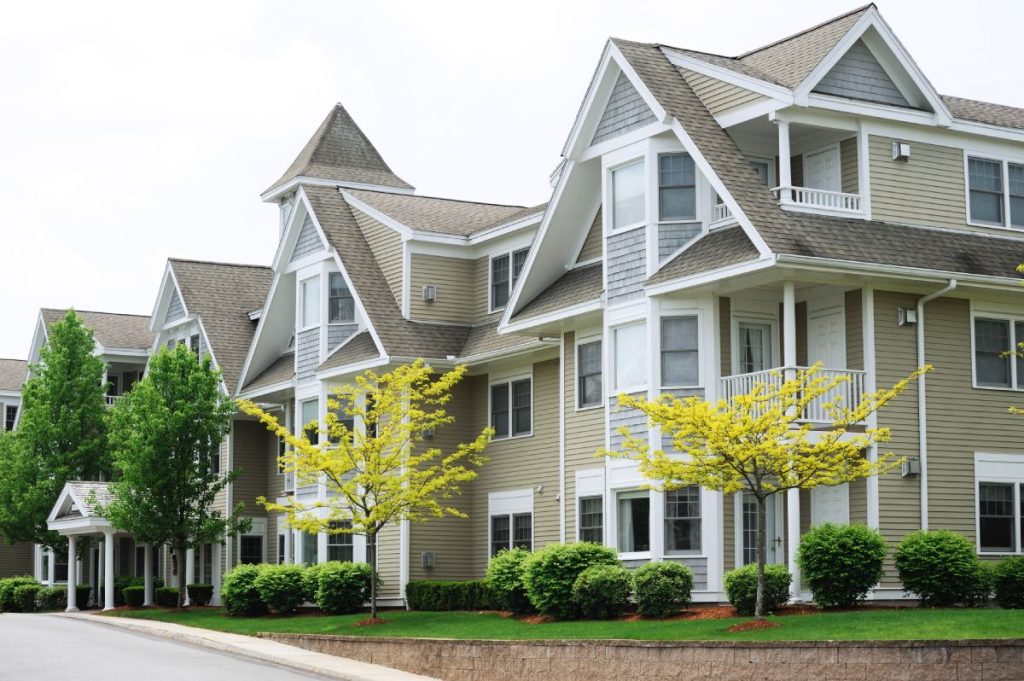Buying a condo is an exciting time for a new homeowner, and as important as insurance is, it can be easy to overlook the details. To help, we’re compiling a state-by-state review of mandatory condominium insurance requirements. This post looks at Iowa, the Hawkeye State.
Does My HOA Have To Provide Insurance in Iowa?
Iowa law doesn’t explicitly mandate homeowners associations (HOAs) to provide insurance. However, there are strong arguments for HOAs to have insurance in place, including protecting the common assets of the association and safeguarding against liability in case of an accident in a common area. The HOA board has a fiduciary duty to act in the best interests of the association, and securing proper insurance is considered a responsible practice.
Who Is Responsible for Homeowners Insurance in an HOA in Iowa?
Iowa has some unique laws, but it is similar to other states in that the owner of the condo must purchase property insurance for their own dwelling. However, property insurance for condos can be more complex than in freestanding dwellings; be sure you read your policy and the master documents of your condo association carefully for the exact details to make sure you’re covered.
Most states have codes or statutes requiring that condominium associations also maintain property insurance on the premises to a specified extent. Iowa, however, does not have such a requirement.
The Iowa Code, Chapter 449B, addresses horizontal/condominium property requirements and guidelines. The chapter, however, doesn’t mention property or liability insurance or any related requirements that the condominium association is required to meet.
Condominium unit owners and those looking to purchase condominium units in Iowa should be aware that condominium associations are not required by statute to maintain property or liability insurance. It’s always best to review the association’s governing documents (such as its Bylaws) to see if the instruments outline required coverages and allocate responsibilities between unit owners and the association. It’s also worthwhile to inquire as to whether the condominium association maintains insurance despite not being required to by statute.
Where Can I Find a Copy of my HOA’s Rules in Iowa?
The most direct approach is to contact your HOA Board or Management Company. They should be able to provide you with a copy of the governing documents, which typically include the Declaration of Covenants, Conditions, and Restrictions (CC&Rs), and the Bylaws. Because the Declaration of Covenants is typically a public document, it might be recorded with the local county recorder’s office. You can search online or visit the office in person to inquire about finding your specific HOA documents.
What Happens if my HOA Insurance Doesn’t Cover Everything?
Homeowner’s property insurance can provide the sole coverage for one’s unit and personal property, or it can provide supplemental insurance to cover whatever the condominium association’s insurance doesn’t cover. If your Iowa HOA doesn’t have property insurance, and something happens to damage property in which you have a financial stake, you may be liable for the cost of repairs.
Can my HOA Require me To Get a Certain Amount of Insurance Coverage in Iowa?
No. HOA’s do not have the legal authority to require a certain amount of coverage. However, buyers and prospective buyers should be aware of some nuances. Here are three areas that might influence your choice of coverage.
- HOA Restrictions on Dwelling Value: Your HOA’s Declaration of CC&Rs might stipulate that your homeowners insurance needs to cover the dwelling value to a certain minimum amount. This ensures the reconstruction cost is covered if your home is destroyed.
- Replacement Cost versus Actual Cash Value: The HOA might require your insurance to cover the replacement cost (what it would cost to rebuild your home today) instead of the actual cash value (ACV) (i.e., the depreciated value) of your dwelling.
- Indirect Requirements: The HOA might not explicitly require a certain amount of coverage, but their rules might indirectly influence your choice. For example, they might require you to maintain coverage for specific perils like hail or wind, which could push you towards a higher coverage level.
Does the Iowa “Line of Sight Rule” Apply To HOA Insurance?
No. The Line of Sight Rule is a specific provision within Iowa law that applies to replacement cost coverage in individual homeowners insurance policies, not HOAs. In brief, in case of partial damage to a structure, the law requires insurance companies to match the existing features of the structure to a reasonable extent. An example is damage to roof shingles: If a windstorm damages one part of the roof, the line of sight law can require the insurance company to replace as much of the roof as necessary to ensure a reasonably comparable appearance.
Further Resources on Insurance Coverage Law
Navigating the complexities of insurance claims can feel overwhelming. Whether you’re facing unpaid claims or simply filing for the first time, our eBooks equip you with the crucial information you need to advocate for yourself with confidence.
- Filing A Property Insurance Claim
- Insurance Company Response Time
- What To Do When You Have a Denied/Underpaid Claim
- Wildfire Claims
- Flood Claims Handbook
- More Information on Hurricane Deductible and Policy Limits
- Condominium Hurricane Preparedness
Why Merlin?
Are you fighting an insurance company that won’t pay up on claims? With nearly 40 years of practice and $2 billion in recovered claims, our team stands by your side to ensure you can face any insurance challenge with confidence. Contact us today for a consultation, or read more about how we’re your trusted advocate.



